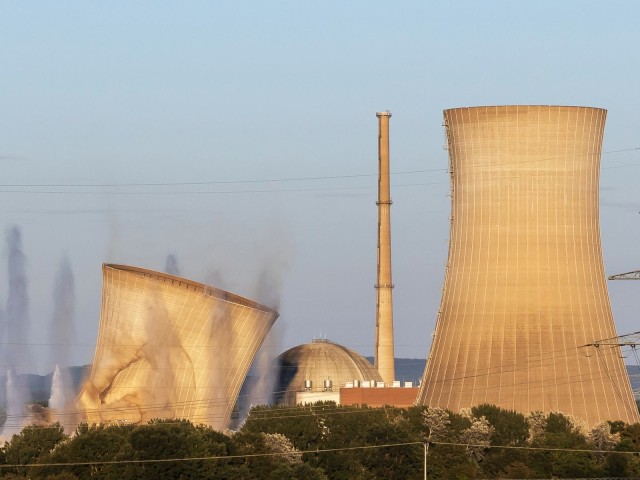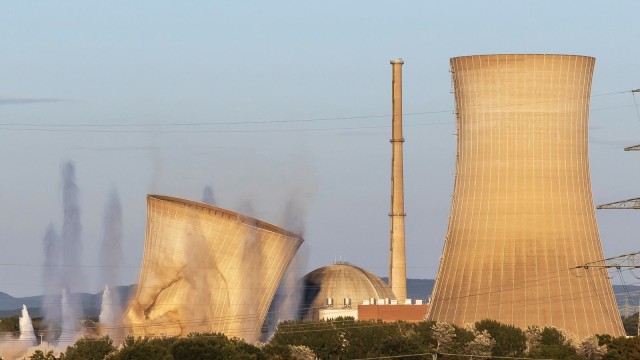June 20, 2025
Nuclear energy: the undead power source
Why a German nuclear revival would be expensive and unhelpful.


At the beginning of 2024, I argued in this column that Germany’s decision to phase out nuclear energy following the Fukushima disaster in 2011 was most a mistake. However, I also made the case that a return to nuclear power—driven by growing nostalgia—would probably be an even bigger mistake.
The new government under Chancellor Friedrich Merz has rightly abandoned the idea of a nuclear revival, despite campaign promises to the contrary, particularly from the Bavarian Christian Social Union (CSU). While the government has accepted the reality of nuclear energy’s challenges, a majority of Germans – 55% – still support its return. To provide context for these view, LBBW Research authored a study explaining why nuclear energy no longer has a future in Germany. The following summarizes key findings from that report.
No unique German path
A popular narrative among nuclear proponents is that Germany is an irrational maverick, separating itself from a world firmly committed to nuclear power as a clean energy solution. But this claim does not hold up on closer inspection. As shown in the chart on global electricity production, nuclear power is on the decline worldwide, while renewables are rapidly expanding.
Global electricity generation by source
Share in %, 2000–2024
⬤ {series.name}: {point.y}
Nuclear power is not suitable as a backup for wind and solar
But what happens when neither the sun shines nor the wind blows? Could nuclear energy effectively supplement the naturally fluctuating power output of renewables? Unfortunately, the answer is no. Not only would the remaining capacity of Germany’s decommissioned nuclear plants fall far short of what’s needed to cover such shortfalls, but nuclear power is also far too inflexible. When renewable energy output drops, replacement sources must be able to ramp up almost immediately. However, nuclear plants cannot simply be switched on and off – it can require several days to restart them. To bridge such gaps, what’s needed instead are more energy storage solutions and hydrogen-ready gas plants, which can start up quickly from a cold state.
Too costly: who will pay the bill?
In addition to its lack of flexibility, nuclear energy faces significant financial hurdles. Germany already has some of the highest electricity costs in Europe. Reintroducing nuclear would make energy even more expensive, unless the government heavily subsidizes the industry with taxpayer money. France is a prominent example of nuclear financial challenges. Its stateowned operator, EDF, is struggling with massive cost overruns and de-lays for new projects, prompting the French Court of Auditors to advise stopping all future nuclear investments. Similar problems are evident in the UK, where the Hinkley Point C reactor has seen construction delays and exploding costs. In Germany, former nuclear operators have unanimously rejected restarting old plants. The reasoning is simple: many critical components, such as turbines and cooling systems, have already been dismantled, and reviving these facilities would not be economically feasible.
The unresolved waste problem
Oh, and let’s not forget the radioactive waste that no one wants – oddly enough, not even Markus Söder, Bavaria’s premier and one of the most ardent nuclear energy advocates. Instead, many, including Söder, pin their hopes on nuclear fusion, even though it remains decades away from commercial viability.

Nuclear energy no longer has a future in Germany.
Download To the point!
-
279.7 KB | June 20, 2025
This publication is addressed exclusively at recipients in the EU, Switzerland, Liechtenstein and the United Kingdom. This report is not being distributed by LBBW to any person in the United States and LBBW does not intend to solicit any person in the United States. LBBW is under the supervision of the European Central Bank (ECB), Sonnemannstraße 22, 60314 Frankfurt/Main (Ger many) and the German Federal Financial Supervisory Authority (BaFin), Graurheindorfer Str. 108, 53117 Bonn (Ger many) / Marie-Curie-Str. 24-28, 60439 Frankfurt/Main (Germany). This publication is based on generally available sources which we are not able to verify but which we believe to be reliable. Nevertheless, we assume no liability for the accuracy and completeness of this publication. It conveys our non-binding opinion of the market and the products at the time of the editorial deadline, irrespective of any own holdings in these products. This publication does not replace individual advice. It serves only for informational purposes and should not be seen as an offer or request for a purchase or sale. For additional, more timely in-formation on concrete investment options and for individual investment advice, please contact your investment advisor. We retain the right to change the opinions expressed herein at any time and without prior notice. Moreover, we retain the right not to update this information or to stop such updates entirely without prior notice. Past performance, simulations and forecasts shown or described in this publication do not constitute a reliable indicator of future performance. The acceptance of provided research services by a securities services company can qualify as a benefit in supervisory law terms. In these cases LBBW assumes that the benefit is intended to improve the quality of the relevant service for the customer of the benefit recipient. Additional Disclaimer for recipients in the United Kingdom: Authorised and regulated by the European Central Bank (ECB), Sonnemannstraße 22, 60314 Frankfurt/Main (Germany) and the German Federal Financial Supervisory Authority (BaFin), Graurheindorfer Str. 108, 53117 Bonn (Germany) / Marie-Curie-Str. 24-28, 60439 Frankfurt/Main (Germany). Deemed authorised by the Prudential Regulation Authority. Subject to regulation by the Financial Conduct Authority and limited regulation by the Prudential Regulation Authority. Details of the Temporary Permissions Regime, which allows EEA-based firms to operate in the UK for a limited period while seeking full authorisation, are available on the Financial Conduct Authority’s website.



